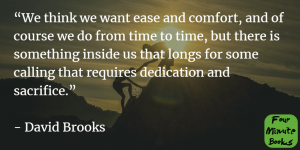《自律養生實踐家之旅349》 不和自己在一起的人

讓我先描繪一個你我都熟悉的劇本,故事的主角是一位女性。某天,她在洗澡時摸到乳房有些硬塊,於是告訴伴侶,兩人決定去醫院檢查。
醫生診斷為鈣化,建議切片,結果是良性。隔年追蹤也沒有異常,再隔年卻出現擴大的跡象,醫生便建議手術切除異常部位。
像這樣的案例實在太多,我必須稱這些女性為「苦主」。她們在乳房被全切之後,時常懷疑人生,也不時對自己的選擇感到疑惑與懊悔。
一路上,專注於病灶的她們,完全依循醫生的指示。身邊的家人與朋友也不斷鼓勵她們「要聽醫生的話」。然而,最終留下殘缺的身體的是誰?在整段過程裡失去主見的人又是誰?
人生,我們或許都有一段缺乏自己主見的時期,可能長達三十年、五十年,甚至一輩子。怎麼活、怎麼選擇,全都依靠別人的意見。
《第二座山》之所以引起廣大迴響,正因為那是許多人在人生翻轉之後的深刻感悟,終於開始為自己而活之後,才會感受到的震撼。
找到自己,是人生最重要的覺悟。做什麼,自己決定;如何養生,自己決定;與誰在一起,自己決定;是否接受治療,也由自己決定。
這樣的人生,在你聽來會覺得奇怪嗎?反常嗎?你會覺得「很多事根本無法自己決定」嗎?如果真是如此,那才是真正的謎團。
把「歧視」這個概念縮小,放進日常人際互動中觀察,我們會發現它無所不在。上下長幼的差異、資深資淺的差別,都讓許多人長期活在沒有自主權的人生裡。
太多人習慣把自己侷限在角落,習慣一種「沒有地位的人生」。想做一點事,不是被預算限制,就是被他人的意見掣肘。
回想我們成長過程,多少長輩提醒過:該讀什麼科系才有前途,該選什麼行業才算穩定,最好去當醫師、律師、會計師或建築師才有地位。
我們何時開始被教育成熱衷掌控下一代人生的人?從來不顧孩子的天賦,從不在乎孩子快不快樂,以為自己的價值觀就等於全世界的共識。
我觀察到一種普遍現象:夫妻關係中的強烈不對等。我所看到的,不是「小鳥依人」,而是一種「唯恐另一半不高興」的恐懼感。
許多男人並不是暴力者,形象良好,事業有成。但妻子卻無法私下做決定,因為她知道:若意見不同,他會生氣。
男人往往以為自己不知情,其實潛意識裡非常清楚,他知道妻子尊重他,甚至害怕他不悅;唯獨不知道,妻子沒有屬於自己的人生。
在這樣的婚姻裡,女人往往成為家中的支柱,大小事都得由她處理,但她卻沒有屬於自己的空間。這樣的女人,實在太多。
而我最不想看到的劇情,就是她最終倒下去,甚至因病而離世,從頭到尾都沒有享有自己真正的選擇權。
你想知道「健康的全貌」嗎?我就是那個一路上觀察、記錄的人。我聽從身體的聲音,追隨身體的引導,最終來到身體深處,遇見那個真實的「自己」。
對照這些年來所見證的案例,我幾乎心碎:那些不曾與自己在一起的人,最終是如何倒下的,因為他們的一生,被一群又一群「多管閒事的人」耽誤了、搞砸了。
當我看到有人把自己的生命,甚至全家的生命,都交給醫生決定時,若是熟識,我看不下去;若是不熟識,也只能在心裡感到無比不捨。
因為這樣的決定,正是來自那位「不與自己在一起」的家長。他們帶著全家人一起遠離自己,甚至還大張旗鼓的認為這一切是對的。
我所描述的,不是世界的全部,卻是普遍的真相。這就像財富集中於少數人手中,但真正操控人類迷失的,不是富人,而是所有人。
總有一天,許多人會醒悟:人生的意義從來不是積累財富,而是學會與自己相遇。
是否與自己同在,有一個關鍵:你的生命和所做的事,是否掌握在自己手中?還是,你的人生與工作,始終都是無法掌控的標的。
或許你很清楚,你只是別人的棋子或附庸,不需承擔責任,你甚至覺得「這樣也不錯」。
但當生命的主導權不在自己手上,快樂與否也早已失控,最終連身體都為此而不快樂。
今天的世界格局,已經由一個忽視「身體價值順序」的系統操控,生病的人失去主導權,治病的人決定一切。
沒有人希望世界成為一座人類的大迷宮,因此我們才需要聽見「回家的召喚」:回到自己這個家,也回到身體這個家。
與自己同在,就不再憂鬱;與身體同在,就不再恐懼。
我們所追求的圓滿人生,怎能不把這兩個終極目標包含在內?
(我們以為自己渴望的是輕鬆與舒適,當然,偶爾我們確實需要這些;但在我們內心深處,卻存在一種渴望,那是一種需要奉獻與犧牲的召喚。)
Those Who Are Not With Themselves
Let me begin by sketching a story you and I both know well. The protagonist is a woman. One day, while showering, she feels a lump in her breast. She tells her partner, and together they decide to go to the hospital.
The doctor diagnoses it as calcification and recommends a biopsy. The result is benign. The following year’s checkup shows no abnormality, but the year after, the lump has grown. The doctor suggests surgery to remove the affected area.
Cases like this are far too common. I have to call these women “victims.” After undergoing a mastectomy, many of them are left questioning life, doubting their decisions, and drowning in regret.
Along the way, they focused entirely on the lesion, following the doctor’s instructions step by step. Family and friends kept urging them to “listen to the doctor.” Yet in the end—who was left with a damaged body? Who lost their own voice in the process?
In life, many of us go through long stretches without true self-direction—thirty years, fifty years, even a lifetime. How we live, the choices we make, all depend on other people’s opinions.
David Brooks’ The Second Mountain resonated with so many readers precisely because it captured this awakening: the shock of finally living for oneself after a turning point in life.
To find oneself is the greatest realization in life. What to do—decided by oneself. How to nurture one’s health—decided by oneself. Whom to be with—decided by oneself. Whether to accept treatment—decided by oneself.
Does such a life sound strange to you? Unnatural? Do you think, “So many things can’t be decided by myself”? If so, that is the real mystery.
If we shrink the concept of “discrimination” into the realm of daily human interactions, we will see it everywhere. Hierarchies of age, seniority, or rank keep countless people trapped in lives without autonomy.
Too many confine themselves to corners, accustomed to a “life without standing.” Whenever they want to act, they are bound either by financial limitations or by others’ interference.
Looking back, how many elders once told us which major promised a future, which career path was stable, and how only by becoming a doctor, lawyer, accountant, or architect could one have status?
When did we become people who try to control the lives of the next generation—ignoring their talents, disregarding their happiness, believing our values equal the world’s consensus?
I’ve noticed a widespread phenomenon: the stark imbalance in many marriages. What I see is not tender reliance but a deep fear—“fear of displeasing the other.”
Many men are not violent, even well-respected and successful. Yet their wives cannot make private decisions, because they know: if opinions differ, he will be angry.
Men may think they are unaware, but subconsciously they know very well. They know their wives respect them, even fear their displeasure. What they don’t know is that their wives have no lives of their own.
In such marriages, women often become the household’s backbone, handling everything big and small—yet they have no space that belongs to them. There are far too many women like this.
The scene I dread most is when such a woman collapses—perhaps even dies of illness—never once having enjoyed the right to her own choices.
Do you want to know the “whole picture of health”? I am the one who has observed and recorded along the way. I have listened to the body’s voice, followed its guidance, and eventually arrived at its depths, where I met the truest “self.”
When I compare this to the cases I’ve witnessed over the years, my heart nearly breaks: those who were never with themselves, who ultimately fell, because their lives were derailed and sabotaged by crowds of “well-meaning meddlers.”
When I see someone hand over their life—and even their whole family’s lives—to a doctor’s decision, I can hardly bear it if I know them. If I don’t, I can only feel deep sorrow within.
For such decisions always come from the parent who is “not with themselves.” They lead their family further away from their true selves, even proudly believing this is the right way.
What I describe is not the whole world, but it is a widespread truth. Just as wealth concentrates in the hands of a few, human beings’ greatest loss of direction is not controlled by the rich, but by everyone.
One day, many will awaken: the meaning of life was never about accumulating wealth, but about learning to meet oneself.
Whether you are with yourself hinges on this: Is your life and your work in your own hands? Or are they perpetually beyond your control?
Perhaps you know well that you are merely another’s pawn or dependent. You feel relieved of responsibility, maybe even think, “This isn’t so bad.”
But when life’s steering wheel is no longer in your hands, joy slips away too. Eventually, even your body grows unhappy.
The world today is already governed by a system that ignores the body’s hierarchy of values. The sick lose all agency, while the healers dictate everything.
No one wants the world to become a giant maze of human misdirection. That is why we need to hear the “call to return home”: return to the home of the self, and return to the home of the body.
To be with yourself is to be free of depression; to be with your body is to be free of fear.
And how could a life we call complete not include these two ultimate goals?


